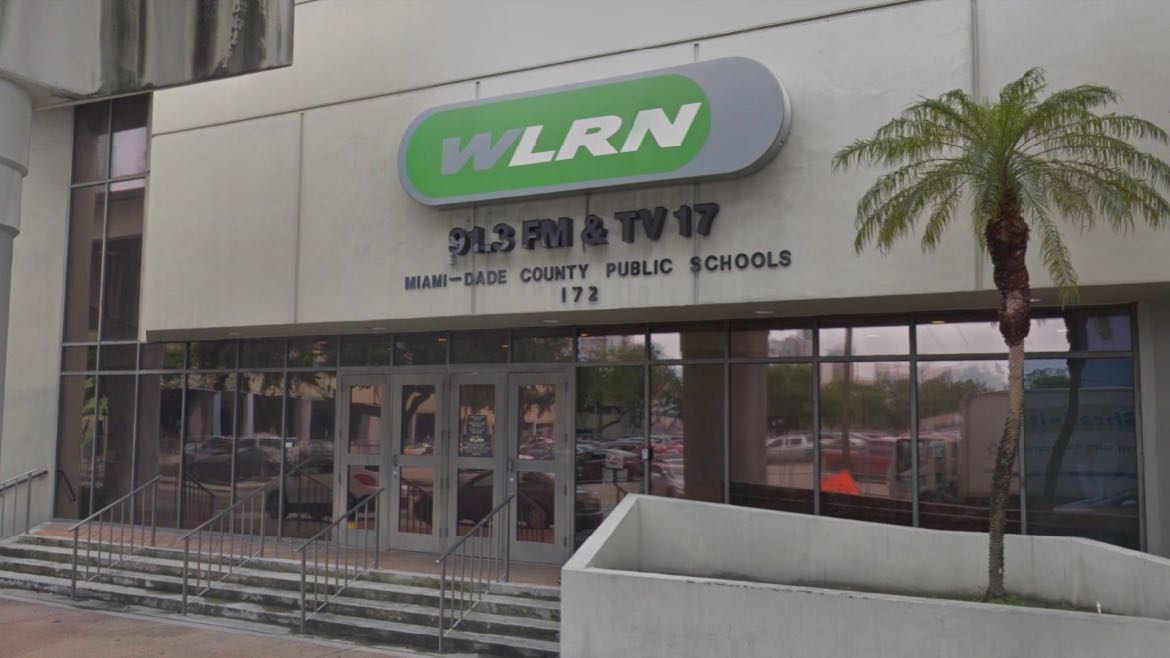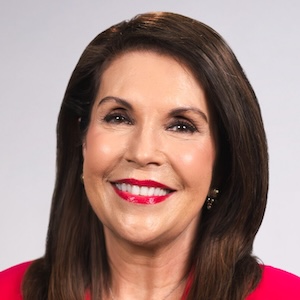House hearing on NPR bias brings criticism from Republicans, but praise for local stations

Rep. Morgan Griffith (R-Va.) during the Wednesday hearing on NPR's alleged bias.
House Republicans criticized NPR CEO Katherine Maher Wednesday for not attending a hearing about alleged bias within the network, while Democrats defended the network and called the hearing unnecessary.
Rep. Cathy McMorris Rodgers (R-Wash.) said the hearing would “discuss accusations from within National Public Radio … that the organization’s D.C. bureau is actively censoring viewpoints, all while enjoying funding from American’s hard-earned tax dollars.”
“The Energy and Commerce Committee will fully fulfill its responsibility to investigate the allegations against NPR and take appropriate action based upon what we find,” she added.
The hearing was announced April 30 in a letter sent to Maher by Reps. Morgan Griffith (R-Va.), Cathy McMorris Rodgers (R-Wash.) and Bob Latta (R-Ohio). They referenced the April 9 commentary published on the website The Free Press by now-former NPR editor Uri Berliner, who criticized the network for a liberal bias in reporting and a lack of ideological diversity among staff.
The House Committee on Energy and Commerce has “concerns about the direction in which NPR may be headed under past and present leadership,” the lawmakers wrote. The representatives also asked NPR to provide a breakdown of the registered political affiliation of its news staff over the last five years.
Maher declined to attend the hearing due to a conflicting NPR board meeting that had been scheduled more than a year ago, according to the network. In a written statement provided to the committee, Maher thanked Congress “for supporting public broadcasting and public media institutions, including NPR, that provide public interest journalism to the American public, and in doing so protecting freedom of the press in this country.”
“I welcome additional conversation and feedback from the Congress on how we can serve our audiences better, and I look forward to speaking with you in the near future,” Maher wrote.
In a statement Wednesday, NPR said that it “takes the Committee’s comments and questions seriously, and welcomes the opportunity to discuss how we can best meet our public mandate to serve all Americans and reflect a diversity of perspectives.”
NPR added that it had proposed alternate dates for Maher’s appearance “and will continue to work with the Committee and respond to their letter.”
‘Shame on this committee’
Rep. Dan Crenshaw (R-Texas) said he was “disappointed” Maher didn’t attend the hearing, which was held by the Energy and Commerce Committee’s oversight and investigations subcommittee.
“It shows a severe lack of courage not showing up to this committee and answering some simple questions about political bias for what is an extremely important organization, a taxpayer-funded organization, that prides itself supposedly on unbiased news reporting,” Crenshaw said.
“Hopefully we can work out a time for [Maher] to appear to testify before this committee in the near future,” Griffith said in his opening statement. “The only reason not to appear in front of this committee at some point in the near future is if the allegations are both true and NPR doesn’t care.”
Meanwhile, Democrats called the meeting a waste of time and criticized Republicans for calling the hearing on short notice and seeking the political affiliations of NPR journalists.
“The majority members keep attacking the NPR CEO, Katherine Maher, because she’s not here,” said Rep. Diana DeGette (D-Colo.). “They gave her one week’s notice. She’s a brand new CEO, and today is … her first board meeting as CEO. And you want to haul her in here so that you can rake her over the coals for your partisan issues. Shame on this committee.”
Rep. Frank Pallone (D-N.J.) called the hearing a “complete waste of this committee’s time” and added that it showed a “lack of seriousness” by the Republican majority, which “refused” to accept NPR’s alternate dates.
“It’s fully understandable that Ms. Maher is not here today,” Pallone said.
Pallone said Republicans’ demanding of political affiliations of NPR’s employees and board members was a “very disturbing turn.”
“These are the same tactics employed during the dark days of McCarthyism,” he said. “I had hoped that that was over.”
Praise from Republicans for member stations
Despite Maher’s absence, the hearing proceeded for more than two hours with witnesses Craig Aaron, co-CEO of the media advocacy group Free Press; Howard Husock, a senior fellow at the American Enterprise Institute and a former CPB board member; James Erwin, federal affairs manager for telecommunications at Americans for Tax Reform; and Tim Graham, executive editor for the right-leaning NewsBusters.org.
In his testimony, Husock called for “a decentralized NPR” with member stations keeping more federal funds “for their own newsgathering, rather than having to send them to NPR in Washington.”
Erwin said he opposes state-funded media, even “if NPR was the most neutral, fair media outlet with no ulterior motives.”
The funding model for public broadcasting is a “shell game,” Erwin said, because “tax dollars are given to CPB, which passes a few million to NPR so they can claim the taxpayer contribution is negligible, while the rest is laundered through public affiliates and kickbacks in the subsidies to NPR.”
Erwin suggested that “short of fully cutting off funding for NPR, which would be ideal,” Congress could include a box on tax returns that taxpayers could check to voluntarily contribute to an “NPR fund.”
Free Press’ Aaron argued that calls for defunding NPR could affect local stations.
“I think public media … could play a bigger role in supporting that kind of local coverage that really describes what’s happening in local [communities] and makes sure those reporters are there,” Aaron said. “That’s why I worry about these threats for defunding, because in many places, these public radio stations, they are the newsroom. They are the six or seven reporters trying to cover a whole locality. You lose that, and then nobody has any idea what’s going on.”
“While I always welcome Congress’s interest in public media, especially given the crisis in local journalism,” he added, “I’m perplexed that an essay by one disgruntled editor at NPR is cause for a congressional inquiry.”
When asked by Rep. Debbie Lesko (R-Ariz.) what accountability measures could be implemented “to ensure NPR provides impartial coverage,” Graham said that “a more regular hearing process would be important. It would be good for Katherine Maher to actually have to come up here” and explain why NPR didn’t cover the story of Hunter Biden’s laptop, a decision Berliner criticized in his essay.
While some Republicans lambasted NPR for what they perceive as political bias, calling its news left-wing propaganda, others spoke positively about public radio stations in their districts.
Rep. Brett Guthrie (R-Ky.) said journalists at WKYU in Bowling Green, Ky., “work hard.”
“I don’t always agree with the way they cover me, but I absolutely think they do it in a fair way,” Guthrie said.
Rep. Griffith said NPR has become “what appears to be a progressive propaganda purveyor” but added that he was not talking about stations.
“I would make the distinction that they have often been more responsive and have more responsive programming, and local public interest in civic stories,” he said. “I generally felt the local radio stations in my part of Virginia mostly provided public service and in many cases are useful in helping to preserve local heritage.”
Griffith later added that “historically, even when I was in the state legislature, I supported the local radio stations because they do some programming that you can’t get elsewhere, like the history of bluegrass, which is important in my district.”






